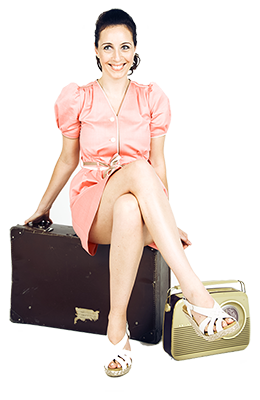Canadian TV Vs British TV – And What It Tells Us About Our Two Cultures
Written by Jaillan Yehia
As a Brit in living in Canada, I was always asked the same question every time I got into a taxi.
It went like this:
Taxi Driver: “What part of Australia are you from?”
Me: (Struggling to remain polite, but being British and not Australian, succeeding at remaining calm) “Haha. I’m actually from London.”
Taxi Driver: “Where do you like better, there or here?”
The phraseology of this question remained remarkably consistent – just as every waitress asked precisely ‘how the first few bites are tasting’ – word for word.
It was as though all Canadians came with a script, and I was still learning the lines. Of course ‘sorry’ is already second nature to Brits but ‘buddy’ and ‘toque’ was new Canadian lingo for me ‘for sure’).
Anyway I never quite knew what to say to the question of which is better, Canada or England, because the answer to that is far too complex to discuss on an $8 cab ride.
Until I realised that differences between British and Canadian culture can be summed up by simply turning on the TV.
One Canadian TV show that caught my eye was Polar Bear Town. It gave me real pause for thought as to why I could never possibly give all those taxi drivers a straight answer on whether Canada or England is the better country.
The documentary series, set on the edge of Canada’s Arctic in Churchill, Manitoba, is chock full of icy images of polar bears and outdoorsy men, and demonstrates everything I liked best about life in Canada: that it’s totally, uniquely and unmistakably Canadian. And you just can’t get that anywhere else.
In short the best thing about Canada is it’s unashamed Canadianness.
When I first moved to Canada I was so busy with all the logistics of moving and chores of starting a new life that I didn’t have time for TV. But once I spent enough time in Canada to get used to it and shook off the idea that it was a waste of precious time to turn on the TV, I was by turns enchanted and bemused by the array of classic Canadiana being broadcast.
As well as a lot of hockey, there were shows with titles like Ice Road Truckers and Carver Kings, and I lapped up a TV diet of cliched Canadian pursuits – and I learned that the archetypal Canadian TV show, repeated with a regularity reserved solely for Only Fools and Horses back home is Alone in the Wilderness.
That’s not to say that I didn’t miss the classic English shows like Only Fools and Horses. I was surprised to find that it was the trashiest TV shows that I really craved – things like Gogglebox, Take Me Out and The X Factor, so shows that I probably wouldn’t even want to admit I watched.
I soon realised those programmes represent British people and a unique kind of British pop culture which I felt adrift from so far away from home, so like a lot of expats I ended up subscribing to a virtual private network service to be able to watch UK TV online in Canada. Without it I couldn’t have accessed BBC iPlayer or UK Netflix and it was always a delight to tuck into a new episode of Eastenders or something equally English while staring out at the Canadian mountains.
Of course all tourists to Canada assume that Canadians spend their time in those mountains, hunting, shooting and fishing -when they’re not playing ice hockey and drinking litres of maple syrup. But surely, I thought, this can be no more a reflection of reality than the notion that all Brits commute to work on penny farthings wearing bowler hats and know the Queen.

I’m English ergo I know The Queen. In my case it’s sort of true – I do know someone who knows the Queen
When it comes to TV, and when it comes to bears, I grew up more Paddington than polar. I also grew up in proximity to it, if we’re talking the London locale after which everyone’s favourite bear is named.
And that tells you everything about why I think England is best – namely because I grew up in London and there’s no replacing that in my affections.
But also because the best thing about England to me isn’t actually its Englishness, but its diversity. Paddington is an expat from Peru after all.
Turn on a TV set in Blighty and granted you may be faced with something as English as Eastenders, but you’re just, if not more, likely to discover an eye-opening documentary about coffee farmers in Paraguay, or, well any other subject and location that you can or cannot imagine.
Notwithstanding a certain current British bun fight about membership of the EU which we won’t dwell on here, the best thing about England is it’s unashamed flag-flying worldliness and card-carrying diversity.
But try telling all this to a Canadian taxi driver while the meter is running.
So perhaps I should just be polite and assure the next Canadian cab driver that I like Canada best, buddy – because being polite is something that’s a necessity in both England and in Canada.
Trackback from your site.










